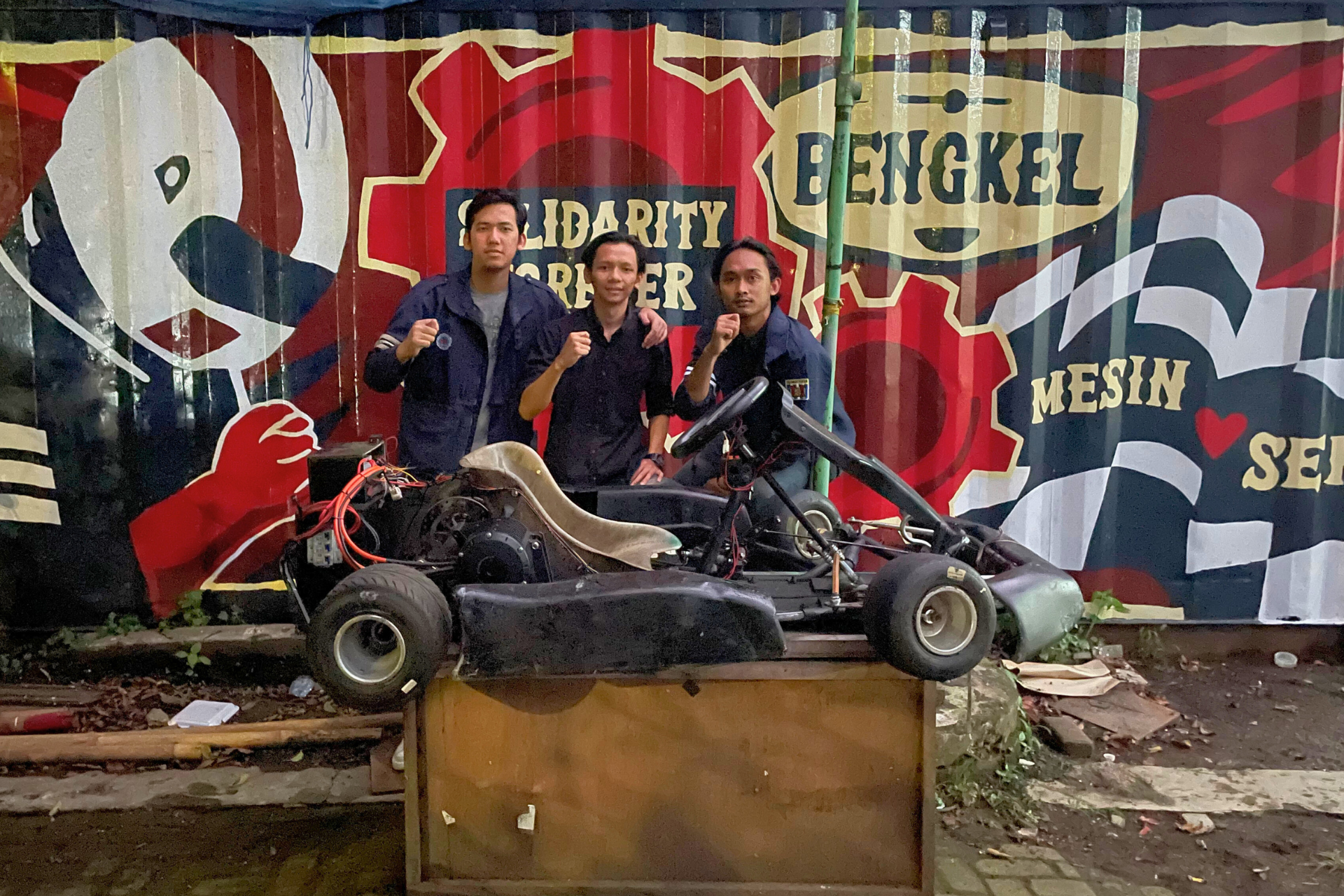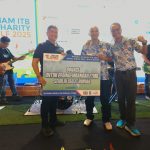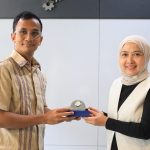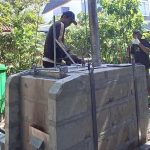RCKT ITB Independently Assembles Electric Go Kart
Bandung – Primarily composed of Mechanical Engineering ITB students, the Red Container Karting Team (RCKT) ITB has successfully launched a self-assembled electric go-kart. This achievement certainly demanded significant effort and struggle.
RCKT ITB is a semi-autonomous association from the Mechanical Engineering Student Association (HMM ITB) with a strong interest in the automotive field. RCKT ITB has a good track record for its annual achievements in the National Go-Kart Championship, Eshark Rok Cup Indonesia..
In an interview with the FTMD Media Team, RCKT ITB revealed that the development background of the Electric Go-Kart is a long story.
The spark for the idea of developing this electric go-kart began when RCKT ITB was asked bythe Ministry of Public Works and Public Housing (PUPR) representative to develop it. Unfortunately, at that time, they were still focused on conventional combustion engine go-karts, thus realizing they were somewhat late in recognizing the substantial potential of electric vehicles.
They also added that the Faculty encouraged them to realize the use of electric vehicles on campus.
Observing Indonesia’s strong commitment to the Carbon Footprint at the recent G20 event, where one of the steps is a subsidy for electric vehicles, RCKT ITB members became increasingly interested and curious about the potential of electric vehicles, especially electric go-karts.
“As students, who have a role as future technology experts, we realize that we also have to start researching electric vehicles. In that process, a curiosity arose to apply electric car systems to go-karts,” explained one member of RCKT ITB.
The working phase of the electric vehicle system began in early 2023. The main objective of assembling this electric Go-Kart is as a learning means for RCKT ITB members to have a better understanding of electric vehicles, considering the trend of electric vehicles is predicted to continue to rise in the future. In addition, they also plan to participate in electric go-kart championships in the future.
One challenge in assembling this electric Go-Kart was obtaining raw materials and assembling components that required adjustment from conventional combustion engine go-karts to electric go-karts, which required considerable funds.
Armed with experience assembling combustion engine Go-Karts, they noticed one of the main differences felt when assembling electric Go-Karts was the instant torque possessed by electric motors. Electric motors can reach a speed of 100 km/h in 3 seconds from 0 km/h. This advantage provides a more responsive and impressive driving sensation for riders. Furthermore, in terms of manufacturing costs and equipment, electric Go-Karts are also more economical than conventional combustion engine go-karts. This provides potential for developing more affordable electric vehicles in the future.
Despite the advantages offered, RCKT ITB recognizes the battery waste problem produced by the electric go-kart they assembled. The most significant and most expensive part of electric vehicles is the battery. To address this, they stated the need for a national strategy to manage electric battery waste.Tobattery waste produced, RCKT ITB plans to collaborate with materials engineering students who have studied battery processing earlier.
They also realize that the trend of electric vehicle development in Indonesia still needs to align with the electric vehicle charging infrastructure development. To circumvent this, they have designed a charging system that can be done at home using a 72-volt 2 Ampere adapter, where 100% battery capacity can travel up to 80 km with a full charging time of 2 hours.
In the future, there is still much to explore in developing this electric Go-Kart, ranging from performance aspects to controllers and other components. In particular, the battery management system needs to be further developed to optimize battery performance.
With the success of RCKT ITB launching their self-made electric go-kart, it is hoped to inspire the community, especially students, to continue developing environmentally friendly technology in Indonesia.
(written by Adji Riksa) (edited by Ainayya Azzahra)







